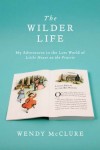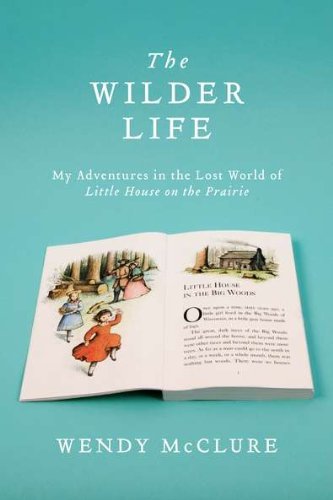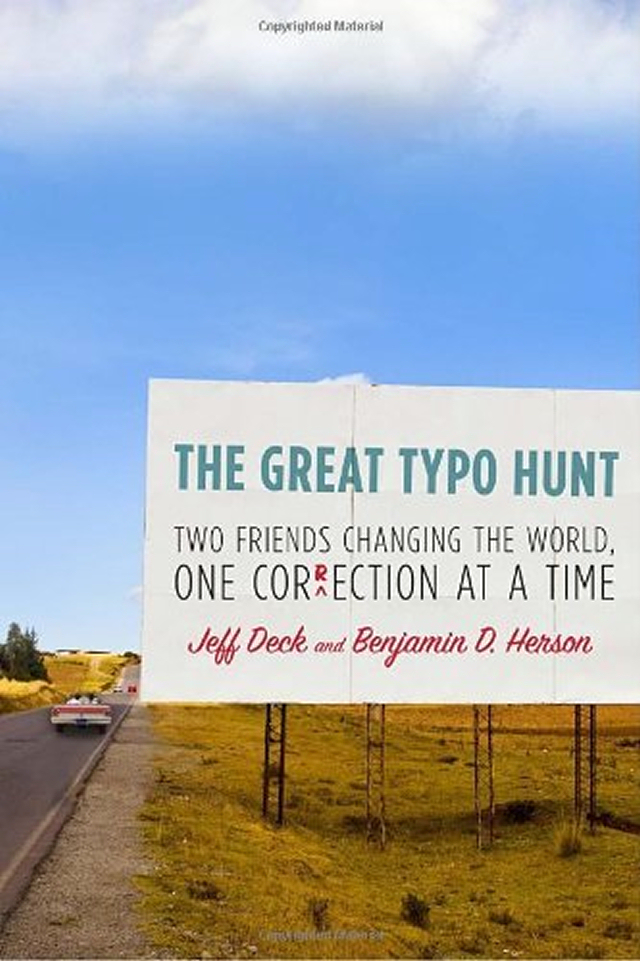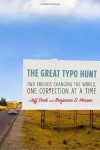 The Plot
The Plot
Author Wendy McClure immerses herself in the world of the Little House books after she rereads them as an adult. The tale of the Ingalls family gets a hold on her imagination and she begins her journey into “Laura World”, a strange place where doomsday religious extremists can bump up against East coast liberals and cheerful homeschooling families. Where fans of the television series and fans of the books have wildly divergent views of the same source material. Where the true facts of history occasionally conflict with the sometimes more persuasive reality of the books. She tries to get to the bottom of the books’ attraction and learn more about the real Laura Ingalls Wilder, whose life was softened and fictionalized for the Little House books.
My Thoughts
The timing of this book’s arrival could not have been more perfect from my perspective. Here at Tripletake we’ve been gearing up for a Little House bonanza in the second half of 2011 — we’re all to read the main series, some of us for the first time, and any of the peripheral books (some more real than the series, some less) we care to. So The Wilder Life was sure to set the right mood and prepare me to dive in.
I wasn’t wrong. This memoir/travelogue, which loosely follows McClure’s travels to a variety of the Ingalls-Wilder homestead sites, mirrored many of my own thoughts and feelings on the series exactly, and left me eager to reread not just the Little House books, but also much of the non-fiction literature that’s sprung up around them and their creator.
The book opens with McClure reminiscing on her childhood, her attraction to certain types of books, and her relationship with the Little House books in particular. So much of what she wrote was so similar to my own experiences, I spent a good portion of this chapter just nodding or laughing in agreement. To me, the Little House books were unusual in that I owned them – I’d gotten a complete boxed paperback set when I was 7 or 8 years old, around the same time I received a similar set of the Narnia books. Until I was in my teens, I actually owned very few books: there weren’t any bookstores very close to where we lived, I had no money, and I read too voraciously to support my habit that way anyhow. So there was the library. But the books I read from the library were different; they weren’t mine, and though I could always check them out again and again (and often did), it wasn’t entirely the same. And then there was the fact that Laura was “real”, an actual person who had once existed in the same ghostly, nebulous way as George Washington or Louisa May Alcott, and unlike the characters featured in most of my other books.
Like McClure, I also somehow missed out on the TV show for the most part. I believe I’m a few years younger than she, so my main memories of the show while it was still airing are of snippets from the later seasons, when things started to get crazy. When I think of Little House on the Prairie as a television show, my mind is filled with horrors: tornadoes, fires, dead babies. I was afraid of the show and even now it makes me tense when I happen to flip past it on some cable station. But though there are also terrible incidents in the books, they still retain a warm fuzzy feeling for me. And again like McClure, what sticks with me are some of the little things which sounded so exotic and fun – maple syrup on snow, braiding straw into hats, sewing quilts, smoking meat (the whole pig butchering scene, in fact, is made to sound incredibly fun and delicious, even though I’m sure I would be ill if confronted with it in real life).
I also never really thought about the fact that the places in these books were real and could be visited. To a little girl in New Hampshire, the midwest was remote, practically another planet. And even when I might have gone to visit quite easily — living in Minneapolis for two years — it never even occurred to me! For the last, I will always kick myself. (Aside: Similarly to the author’s partner, my own husband was not a Little House aficionado growing up. I suppose it’s because they’re not considered to be ‘boy’ books. But that is no excuse for being FROM WISCONSIN and having no idea that SO WAS LAURA. I’m still not over it.)
McClure finds herself drawn back in to “Laura World” after the death of her mother. Drawn back in a serious way, as she starts to research more about Laura’s real life, to read biographies and old journals and non-Little House writings. She does a huge amount of reading and research and old-timey experiments. Some of what she reveals I knew about (the Laura anime), some I’d heard of (Pioneer Girl, the original Laura draft memoir – I didn’t realize you could get a copy), and some shocked me (@halfpintingalls, a twitter account I’ve been following practically since it first appeared, is written by Wendy McClure).
Don’t get me wrong – this is not a biography, and though there is plenty of factual information about the Ingalls and Wilder family, that’s not the focus here. But the descriptions of the visits to the homestead sites are much more personal and thus more useful (at least to me) than any travel guide could be. I was especially intrigued by the visit to De Smet and the last of the Ingalls homesteads (Laura herself spent most of her adult life in Missouri, but as a Wilder). Sleeping outside in a covered wagon, even a fake one, sounded really fun. (Even after the misadventures.) I’ve had to stop myself from starting to plan a lengthy car trip vacation several times now.
In Short
I keep meditating on the book, trying to come up with something profound to say about it, but the fact is I simply enjoyed it a lot, and believe other people would, too. Especially anyone who was a little girl similar to myself. It reignited in me the desire to go visit these places at some point, and made me really excited to begin rereading the books as soon as possible. And I’ll definitely be trying some apples and onions in the near future.



